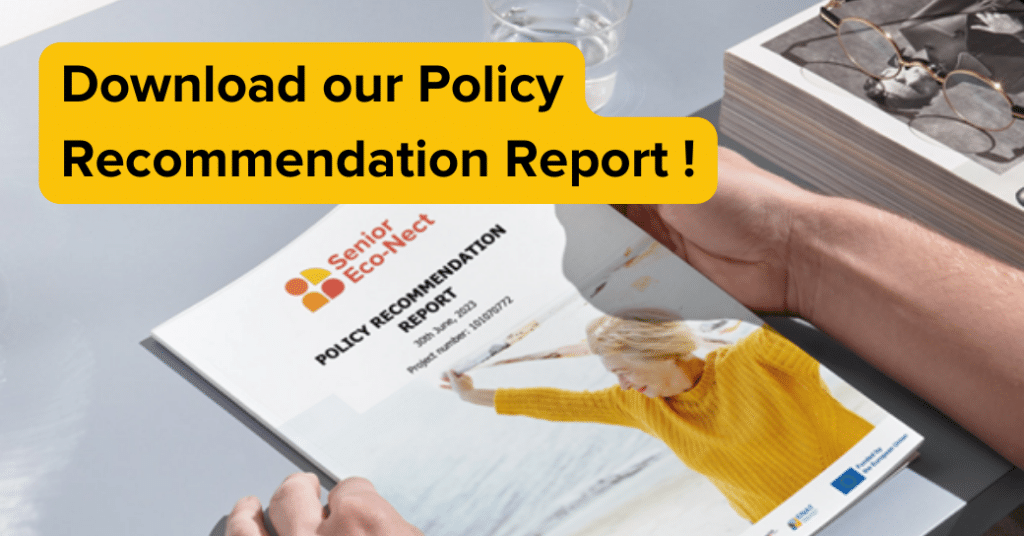This Policy Recommendation Report stems from a collaborative effort among project partners aimed at promoting active and healthy aging. The findings and proposals encompass diverse sectors, including healthcare, tourism, sports, recreation, and adaptive living environments. The Senior Eco-Nect project, focuses on empowering innovation for scaling active and healthy aging.
- Ageing at Home – Adaptable Housing: Emphasizes the importance of “ageing at home” policies, advocating for the design and development of adaptable lifetime homes. This approach allows seniors to remain in their homes comfortably and independently by accommodating changing needs through cost-effective alterations.
- Accessible Tourism: Recognizes accessible tourism as a golden opportunity for economic growth. Investment in senior-friendly infrastructure, facilities, transportation, and customer services can benefit cities and regions, catering to the increasing demographic of senior tourists.
- Silver Economy Ecosystems: Proposes regional ecosystems involving diverse stakeholders to optimize resources and improve care for individuals aged 55 and above. Calls for a shift in Silver Economy Strategy towards knowledge-based international competitiveness and emphasizes co-creation in service improvement.
- New Care Models: Recommends the development of new care models, including telecare, co-living, and co-housing, to address the challenges of aging effectively. Encourages governments to ensure accessible and quality care for economically weaker seniors.
- Innovation: Advocates for collaborative approaches among stakeholders to drive innovation. Highlights the importance of involving end-users in the validation process through living labs. Urges policymakers to support economic sectors aligned with seniors’ needs, particularly in fitness, technology, and wellness.
- Intellectual Potential: Stresses the underutilization of seniors’ intellectual potential and calls for public awareness and support through lifelong learning, digital competencies workshops, and recognition of seniors’ SMEs.
- Volunteers/Solidarity: Acknowledges voluntarism as a means to reactivate seniors, prevent isolation, and promote intergenerational cooperation. Urges policymakers to give more recognition to volunteering activities.
In conclusion, these recommendations aim to guide policymakers in creating sustainable and senior-friendly solutions, encompassing various aspects of active elderly life, adaptable housing, innovation, intellectual potential, and volunteerism.
You can find the full version of Policy Recommendations below.



